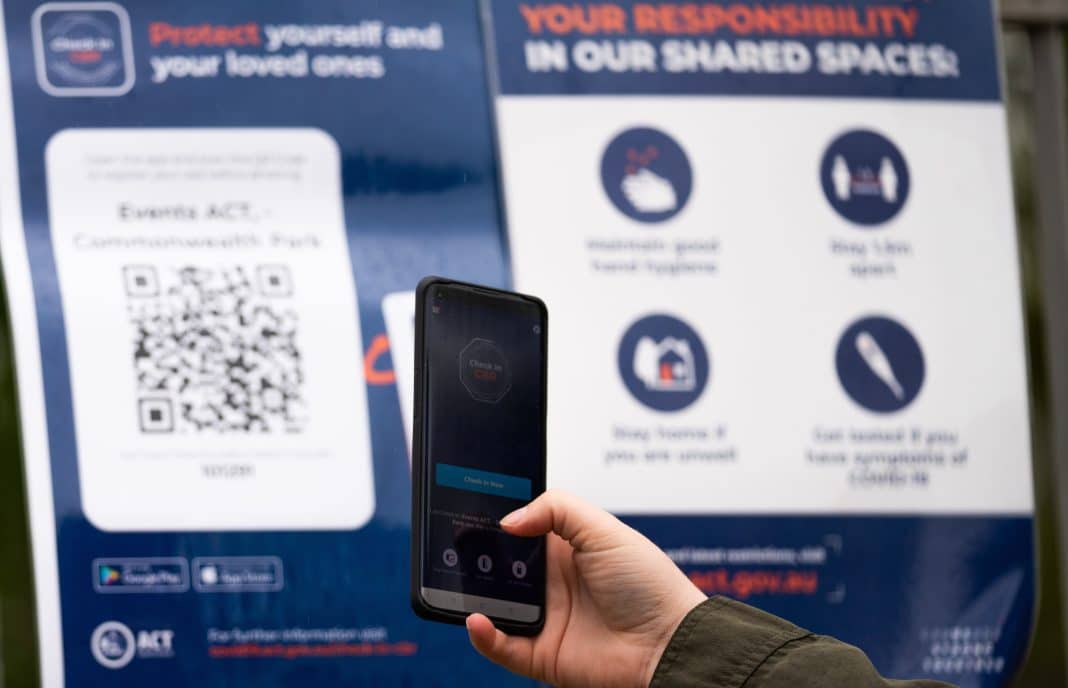Australians are less trusting of how governments and companies use their private data following almost two years of using check-in apps during the COVID-19 pandemic.
New analysis from The Australian National University (ANU) shows people’s trust in major institutions to maintain data privacy fell from an average of 5.70 to 5.49 out of 10 between May 2020 and August 2021.
Study co-author Professor Nicholas Biddle, from the ANU Centre for Social Research and Methods, said while the decline seemed small it was “significant”.
“This is especially the case as the pandemic, lockdowns and the use of apps for contact tracing continued, and even intensified in some cases,” he said.
“Our analysis, covering a time when much of the east coast of Australia was living in lockdown, shows Australians were starting to get more wary about how their private data from check-in apps might be used by major institutions, including governments and corporations.
“The organisations that experienced the biggest decrease in trust were the Federal Government, state and territory governments, social media companies and companies people used for online purchases.
“However, what is interesting is that trust in institutions to maintain data privacy still remains higher than what it was before the pandemic. In comparison, in October 2018 Australians’ trust in how institutions maintain data privacy was 4.78.
“Australians also expressed an increase in concern about the overall security of personal data and information – jumping from 20.82 to 21.40 on a scale of seven to 28 over the same period.”
The study, which included more than 3,000 adults, also examined which Australians were most likely to use check-in apps.
Women are more likely to check in compared to men, with 67.4 per cent of women saying they always do compared to 56.3 per cent of men.
Aboriginal and Torres Strait Islander Australians, those born overseas in a non-English speaking country, those with low levels of education and those outside of the most advantaged areas were all less likely to use check-in apps as well.
Vaccinated Australians were substantially more likely to use check-in apps.
“In another really fascinating finding, the majority of Australians who expressed low trust in how institutions use their data, 54.2 per cent, said they always use check-in apps,” Professor Biddle said.
“While this is quite a fair bit lower than those who have high trust in institutions and always use check-in apps, 68.5 per cent, it shows that despite their concerns, many Australians are doing the right thing and what they have been asked to do by governments to help keep each other and their communities safe during the pandemic.”
The analysis forms part of Australia’s largest and longest running longitudinal study on the impact of the pandemic across the nation, led by the ANU Centre for Social Research and Methods. Data for the study was collected by the Social Research Centre and is available through the Australian Data Archive.
Get all the latest Canberra news, sport, entertainment, lifestyle, competitions and more delivered straight to your inbox with the Canberra Daily Daily Newsletter. Sign up here.



